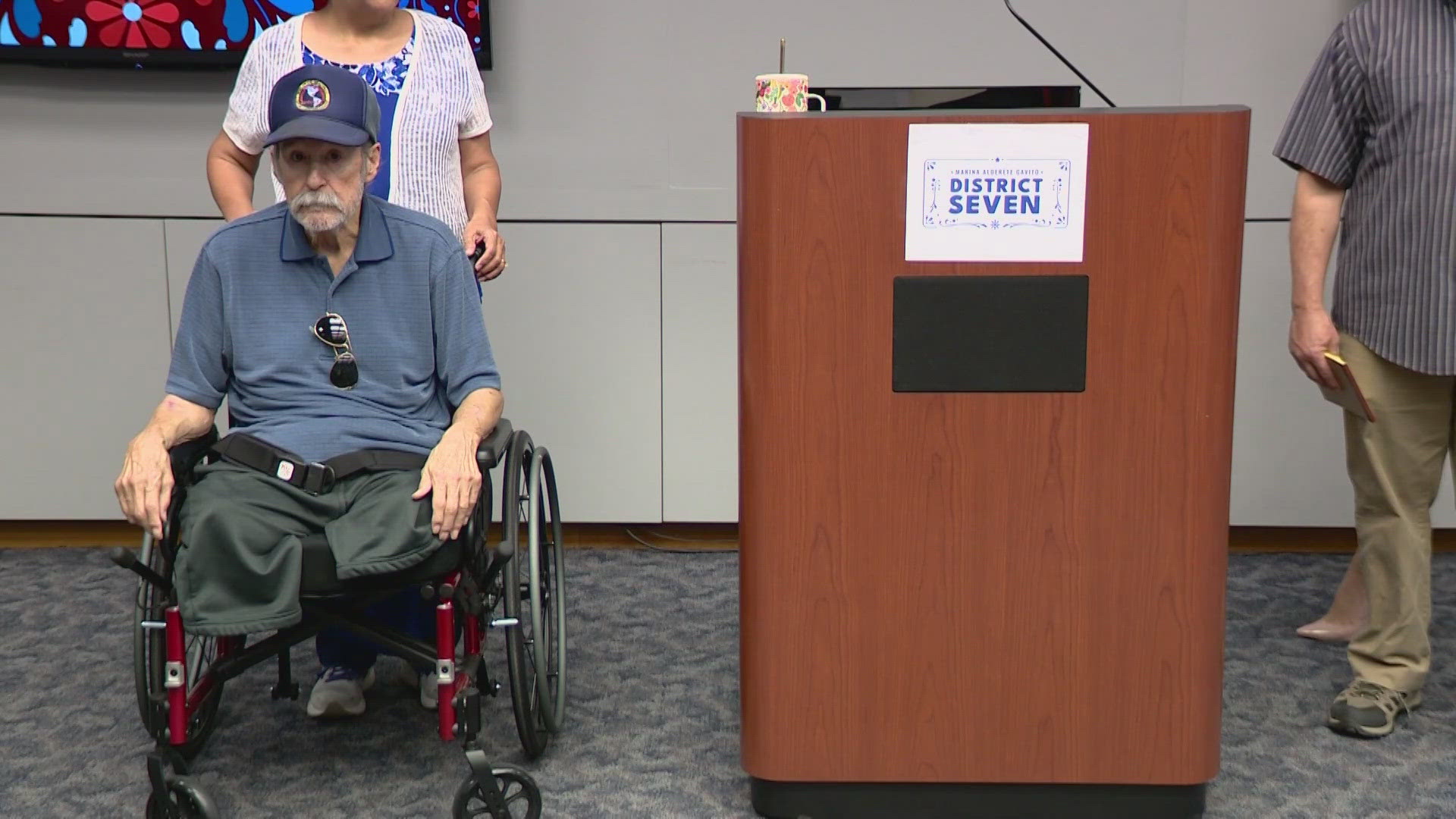SAN ANTONIO — San Antonio's Animal Control Services (ACS) department saw a boost in funding last year, but a City Council member is looking to keep the momentum going by empowering ACS to sterilize stray dogs and putting owners on notice that fines will be higher.
Dog attacks claimed the life of an 81-year-old man last year and resulted in another losing his legs, but Councilwoman Marina Alderete Gavito's proposals – outlined in a Council Consideration Request (CCR) submitted to the city clerk last week – also emphasize the issue of "canines being allowed to roam" city neighborhoods.
"It contributes to overpopulation and overcrowding in shelters, perpetuates diseases amongst dogs in the community, and can disrupt vehicular traffic and cause accidents," the CCR reads.
The document cite a 2019 ACS study which found there were almost 34,000 dogs loose on San Antonio streets "at any given time." Alderete Gavito reads that the goal is to hold irresponsible pet owners accountable.
"This crisis that we are feeling in the city, it's not created by dogs," she told KENS 5 on Tuesday. "It's created by people. We need to be tough on them in order to curb the problem."
Alderete Gavito is firstly seeking harsher monetary penalties for owners whose dogs are found running around off their property. She wants a minimum $500 fine for second offenses and $750 penalties for each offense after that. She supports making payment plans an option to those individuals.
According to city ordinance, San Antonio residents found breaking animal ownership laws today are fined between $100 and $2,000 for first offenses; at least $200 for second offenses; and at least $300 for each offense after that.
According to the CCR, Alderete Gavito also wants ACS to be able to spay or neuter dogs found running loose in the streets, so long as they are medically cleared for sterilization. That would happen while the dog is in ACS care, before being released to its owner.
Lastly, Alderete Gavito wants neighbors who report dangerous dogs to be protected when they do so by using a pseudonym for them. Per the CCR, the initiative would safeguard residents against retaliation.
Four fellow council members have signed on to support the trio of proposals: Marc Whyte of District 10, Manny Pelaez of District 8, Melissa Cabello Havrda of District 6 and Jalen McKee-Rodriguez of District 2.
"We want to see more change," Alderete Gavito said, adding she expects the policies to be implemented within the next few months if approved.
The CCR first has to be considered by the Governance Committee before going to full City Council.
Animal Care Services, in response to the proposal, wrote in a statement:
"Animal Care Services is pleased to continue our work with District 7 as well as our other local and state lawmakers to make San Antonio a safer, more humane place for people and pets. We stay dedicated to creating policies, programs and procedures overseen by the City’s legal review guidelines and in line with existing State law. As this legislative session progresses, SAACS is following up on past departmental recommendations to strengthen Dangerous Dog laws and bolster the investigative process. Objectives aimed at increasing public safety and strengthening investigative process are key components of the department’s comprehensive Strategic Plan which outlines Animal Care Services’ focus areas and goals. The plan, endorsed by City Council in 2023, can be read in its entirety at Saacs.info/StrategicPlan."
For Max De Los Santos who lost his legs to a dog attack in August, and his wife Beatrice, this proposal is a step in the right direction.
"It will never be enough," Beatrice De Los Santos said. "However, it brings awareness to the people that do care. It may never be the perpetrator, it may never be the irresponsible owner, but at least people around are more alert and they can recognize when other neighbors are falling short, they can recognize what that kind of irresponsibility can lead to, and they need to report it."
Alderete Gavito isn't the first to seek changes after last year's rash of dog attacks in the Alamo City. State Rep. Liz Campos proposed legislation dubbed the Dangerous Dog Bill that would make it easier for Texas communities to investigate dangerous dogs and for residents to report them anonymously.
It was eventually vetoed by Gov. Greg Abbott after passing the state House or Senate.
Raymond Najera, was behind the Rep. Campos' push for the Dangerous Dog Bill. His father, Ramon Najera, was killed by a dog attack in February 2023. On Wednesday, he was by Gavito's side as she announced her proposal.
"I feel like there's some still some traction. There's there's people and that still do want changes," he said. "You don't know until it happens to you how how serious the issues are."
Similar bills by Rep. Diego Bernal and State Sen. Jose Menendez never made it past the committee stage.
>TRENDING ON KENS 5 YOUTUBE:

